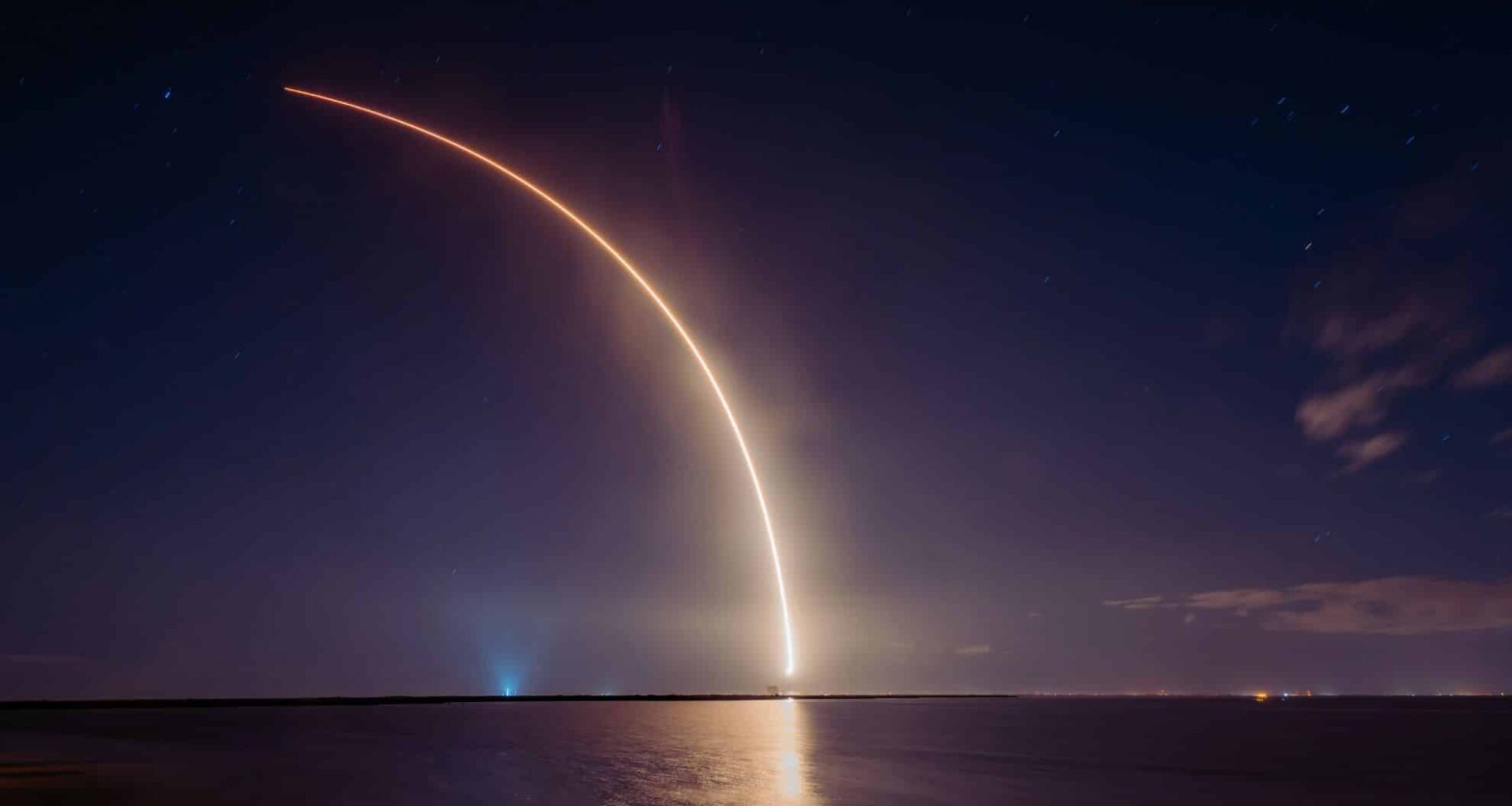In a remarkable achievement for both SpaceX and Amazon, the Falcon 9 rocket is set to launch on August 9, 2025, marking SpaceX’s 100th mission of the year. SpaceX provided the update, confirming that the launch of the KF-02 mission from Florida will take place on that date. The mission will deploy 24 satellites for Amazon’s Project Kuiper, designed to compete with SpaceX’s Starlink network.
The Growth of Amazon’s Project Kuiper
Project Kuiper, launched by Amazon in 2019, aims to deliver high-speed internet services to remote and rural areas that have long been left out of the digital revolution. With over 3,200 satellites planned to orbit Earth, Kuiper hopes to be a strong contender against SpaceX’s Starlink. As of now, Project Kuiper is still in its infancy stage, with this August 9 launch marking only the fourth mission for the satellite constellation. Once fully operational, the network will provide internet access to underserved areas across the world, including parts of the Americas, Africa, and Southeast Asia.
Amazon has enlisted a variety of launch partners to deploy the Kuiper satellites, including SpaceX, Arianespace’s Ariane 6, Blue Origin’s New Glenn, and United Launch Alliance’s Atlas V and Vulcan Centaur rockets. The use of multiple launch vehicles demonstrates Amazon’s commitment to ensuring the timely deployment of the Kuiper satellites, as it works toward its goal of achieving global broadband coverage.
Despite the immense scale of the project, Kuiper faces stiff competition from SpaceX’s Starlink network, which already boasts more than 8,100 operational satellites. This technological arms race between Amazon and SpaceX is likely to shape the future of global internet access, particularly for rural and underserved communities.
Now targeting Saturday, August 9 for launch of the KF-02 mission from pad 40 in Florida. Teams are keeping an eye on weather, which is currently 35% favorable for liftoff
— SpaceX (@SpaceX) August 8, 2025
SpaceX’s 100th Mission: A Milestone for Reusable Rocket Technology
SpaceX’s August 9 launch is not just a key moment for Amazon, but also for SpaceX itself. The Falcon 9 rocket carrying the Kuiper satellites will be SpaceX’s 100th mission of 2025. This comes after the company has already completed 97 Falcon 9 launches, with the remaining three consisting of test flights for Starship, the company’s next-generation, reusable vehicle designed to send humans to Mars.
This significant milestone further emphasizes SpaceX’s remarkable capacity for rocket reusability. The Falcon 9 rocket’s first stage is scheduled to return to Earth approximately 8.5 minutes after liftoff, where it will land on the SpaceX drone ship, “A Shortfall of Gravitas,” in the Atlantic Ocean. This is a routine procedure for SpaceX, which has become renowned for reusing rocket stages to reduce costs and improve launch efficiency. In fact, SpaceX’s most-flown Falcon 9 rocket has already completed 29 successful missions.
The successful reuse of rockets represents a major breakthrough in space travel, making it more economical and sustainable. With the potential to reuse rocket components multiple times, SpaceX is drastically reducing the costs of sending payloads into orbit, which benefits both private and commercial ventures like Amazon’s Project Kuiper.

